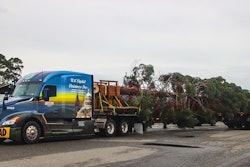While the White House and national media focus on the constraints that have paralyzed the ports of Los Angeles and Long Beach in recent weeks, transportation industry leaders from all segments of the supply chain warn the problem is much broader and more systemic than simply port congestion.
No freight transportation segment is immune from the current crisis as unprecedented freight demand across rail, ocean carriage and trucking expose supply chain inefficiencies at a time when labor shortages plague factories, transportation providers and dock workers.
“We’ve had some significant disruptions on the West Coast in the past, but it didn’t affect the entire supply chain,” said John Butler, president and CEO of the World Shipping Council. “What we have now is different in kind than what we have seen before because we have saturation across all modes. We have a situation where our collective customers aren’t able to pull the goods forward out of the ports because they have nowhere to put them or no way to send them on to their final destination. That is a different situation than we’ve dealt with before.”
Butler was one of several association heads from all modes of freight transportation that participated in a panel discussion this week at the American Trucking Associations’ Management Conference and Exhibition in Nashville to discuss the causes of the supply chain crisis and what can be done to alleviate freight flow issues.
“We shouldn’t go back to normal because normal isn’t working right now. Shippers need to get better about how they communicate with their providers, and providers need to be more forthcoming about the issues they are experiencing.” Gail Rutkowski, executive director for the National Shippers Strategic Transportation Council
“When any piece of the supply chain isn’t able to operate at full capacity, it has reverberating impacts,” said Ian Jefferies, president and CEO of the Association of American Railroads. The record intermodal volume in the last six months has seized the rail sector, causing major backups at rail yards thousands of miles from any major port.










